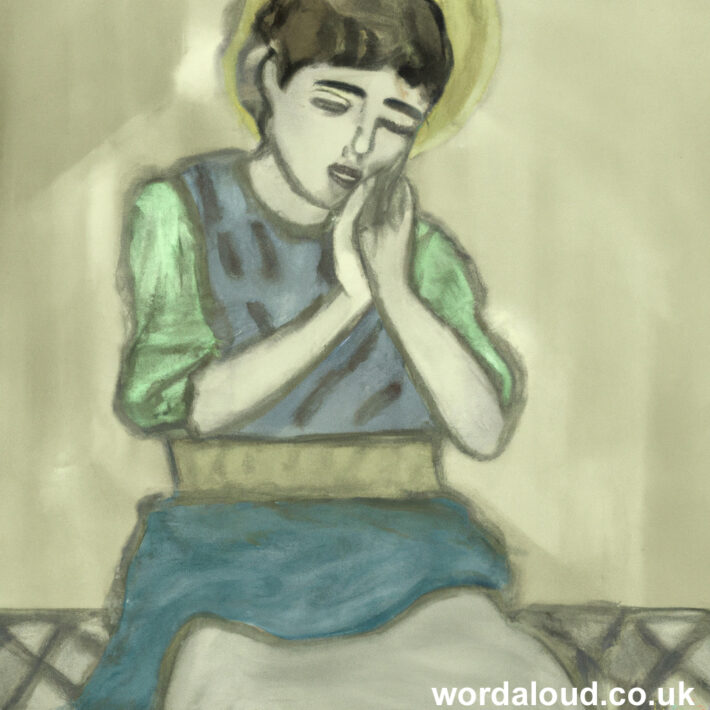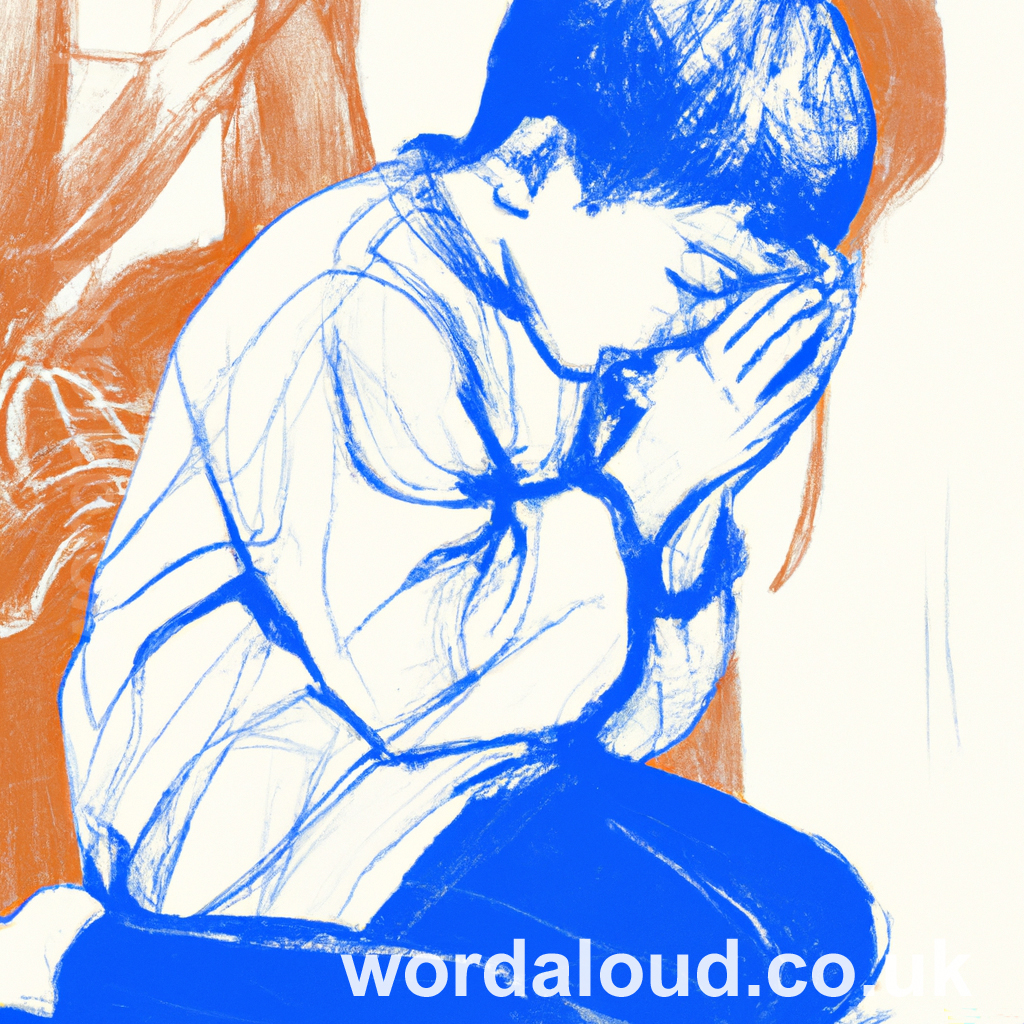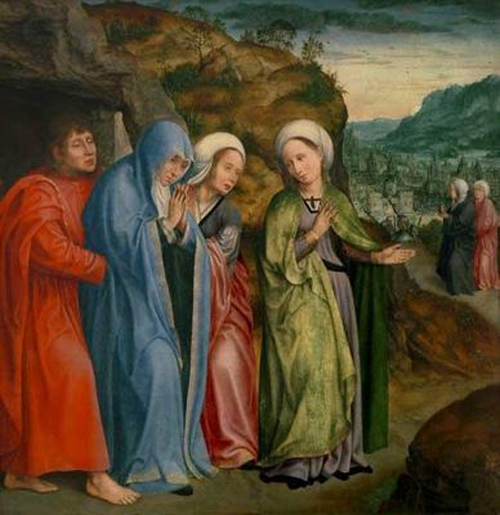Christian Art | Prayer With Jesus | Psalms | A Penitent Supplicant’s Plea For Healing | King David As A Boy | A Psalm Of Penitence | King James Audio Bible
Psalm 38 | King James Audio Bible
YouTube: Psalm 38 KJV | King James Audio Bible | Word Aloud
Psalm 38 is a heartfelt expression of repentance and a plea for divine assistance in the face of suffering and affliction. Attributed to King David, this psalm vividly portrays the anguish of a soul burdened by sin and illness, seeking God’s mercy and restoration.
Acknowledging Sin and Suffering: Psalm 38 begins with a sober acknowledgment of the psalmist’s condition. It is a cry for help, recognizing that the distress faced is a consequence of personal transgressions. The psalmist describes feeling the weight of sin like arrows piercing the soul, causing physical and emotional suffering.
Physical and Emotional Affliction: The psalmist vividly portrays the physical and emotional pain experienced due to the burden of sin. The imagery of festering wounds, stench, and feebleness reflects the depth of the suffering. This serves as a reminder of the real and tangible consequences of sin on both body and spirit.
Isolation and Hostility: Throughout the psalm, the psalmist expresses a sense of isolation and abandonment. Friends and loved ones keep their distance, and enemies plot against him. This isolation intensifies the psalmist’s longing for God’s presence and intervention.
A Cry for Mercy and Healing: Amidst the suffering and isolation, the psalmist turns to God in earnest prayer. He acknowledges his sin, confesses his wrongdoings, and pleads for God’s mercy and forgiveness. The psalmist recognizes that only God can offer healing and relief from the anguish he faces.
The Assurance of God’s Response: Despite the depth of suffering and the psalmist’s acknowledgment of his own sin, there is an underlying trust in God’s faithfulness. The psalmist believes that God will hear his cries for help and come to his aid. This trust in God’s character and the expectation of divine intervention provide a glimmer of hope amidst the distress.
A Cry for Deliverance: The psalmist closes with a heartfelt plea for God not to forsake him but to hasten to his aid. He acknowledges that God is his salvation, and he seeks deliverance from his adversaries.

![]()
Psalm 38 | King James Audio Bible KJV | Love Revealed By Jesus Christ
O Lord, rebuke me not in thy wrath: neither chasten me in thy hot displeasure.
For thine arrows stick fast in me, and thy hand presseth me sore.
There is no soundness in my flesh because of thine anger; neither is there any rest in my bones because of my sin.
For mine iniquities are gone over mine head: as an heavy burden they are too heavy for me.
My wounds stink and are corrupt because of my foolishness.
I am troubled; I am bowed down greatly; I go mourning all the day long.
For my loins are filled with a loathsome disease: and there is no soundness in my flesh.
I am feeble and sore broken: I have roared by reason of the disquietness of my heart.
Lord, all my desire is before thee; and my groaning is not hid from thee.
My heart panteth, my strength faileth me: as for the light of mine eyes, it also is gone from me.
My lovers and my friends stand aloof from my sore; and my kinsmen stand afar off.
They also that seek after my life lay snares for me: and they that seek my hurt speak mischievous things, and imagine deceits all the day long.
But I, as a deaf man, heard not; and I was as a dumb man that openeth not his mouth.
Thus I was as a man that heareth not, and in whose mouth are no reproofs.
For in thee, O Lord, do I hope: thou wilt hear, O Lord my God.
For I said, Hear me, lest otherwise they should rejoice over me: when my foot slippeth, they magnify themselves against me.
For I am ready to halt, and my sorrow is continually before me.
For I will declare mine iniquity; I will be sorry for my sin.
But mine enemies are lively, and they are strong: and they that hate me wrongfully are multiplied.
They also that render evil for good are mine adversaries; because I follow the thing that good is.
Forsake me not, O Lord: O my God, be not far from me.
Make haste to help me, O Lord my salvation.

![]()
Key Themes Of The Psalm For Reflection | Love Revealed By Jesus Christ
- Acknowledgment of Sin and Guilt: The psalmist openly admits his wrongdoing and recognizes the impact of sin on his life.
- Physical and Emotional Suffering: The psalmist vividly describes the physical and emotional pain that accompanies the burden of sin, using imagery of wounds, stench, and feebleness.
- Isolation and Abandonment: The psalmist conveys a sense of isolation as friends and loved ones distance themselves, while enemies plot against him.
- Plea for God’s Mercy: Amidst suffering, the psalmist turns to God, confessing his sins and earnestly seeking divine mercy and forgiveness.
- Trust in God’s Faithfulness: Despite the suffering and guilt, there is an underlying trust in God’s character and faithfulness, with the expectation that God will hear his cries for help.
- Expectation of Divine Intervention: The psalmist believes that God will come to his aid and deliver him from his adversaries, serving as a source of hope in his distress.








